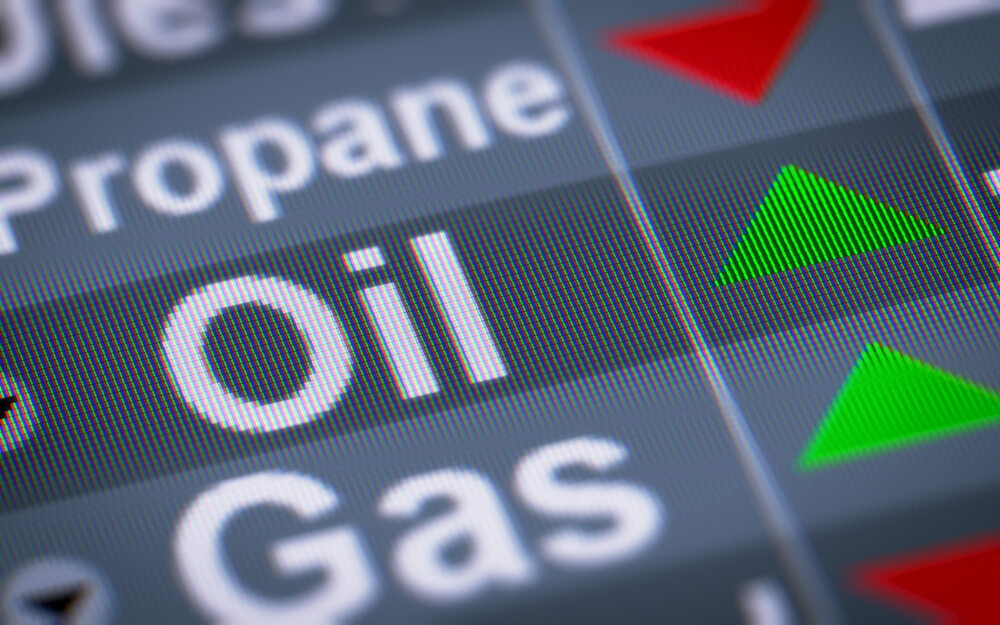Today we’re going to dive into two closed-end funds (CEFs) that have what everyone is on the hunt for these days — massive yields! Both pay more than 8% on average and tempt us with big upside, too, as they’re far cheaper than most other CEFs.
Let’s stop there for a second and talk a bit about CEFs: They’re a small group of funds known for their high yields (averaging around 6.8% across the board currently). They’re like ETFs in that they’re diversified, with each CEF typically buying hundreds of assets within a specific investment strategy.
Unlike ETFs, though, CEFs often trade for less than the actual market value of the assets inside the fund. This is called the discount to NAV. It’s easy to spot (most fund screeners list it), and these discounts can make CEFs great deals when markets are overvalued.
Now let’s move on to our two cheap — and generous — CEFs. Both are nicely positioned to ride surging crude oil, and “convert” those gains into 8%-plus payouts for us!
2 Attractive 8%-Yielding Energy Plays
We all know that oil has spiked in the last 18 months as demand has increased since the early months of the COVID-19 crisis.
Energy on a Roll
To get a sense of the scale of oil’s run, look at the performance, above, of the Energy Select Sector SPDR ETF (NYSE: XLE), a benchmark for the sector. Even though it holds typically slower-moving large cap stocks—names like ExxonMobil (NYSE: XOM), Chevron (NYSE: CVX) and ConocoPhilips (NYSE: COP) — XLE has seen a solid 58% return in the last 18 months.
And that’s just the algorithm-run energy fund! Look at what our first CEF, the Kayne Anderson MLP/Midstream Investment Company (NYSE: KYN), run by one of the savviest investment firms in the CEF business, has pulled off (KYN, in purple below, is a current holding of our sister Dividend Swing Trader service):
A Head Above the Index
KYN focuses on master limited partnerships (MLPs) that own oil and gas pipelines, including the biggest names in that space, such as Enterprise Products Partners (NYSE: EPD), Energy Transfer LP (NYSE: ET) and Western Midstream Partners LP (NYSE: WES). (Many folks avoid MLPs because they issue the complicated K-1 tax package for reporting your dividend income at tax time; buying through a CEF is a good way to avoid that — KYN issues the much simpler Form 1099.)
That’s a somewhat more aggressive portfolio than that of the benchmark ETF, which is why KYN is up a hair more than XLE in the chart above. Another big difference? KYN yields 8.5%, compared to a meager 3.9% for XLE, so much of its return was in dividend cash, not paper gains.
Not just that, but KYN is cheap; trading at a 12.2% discount to NAV, versus XLE trading at par. (As mentioned ETFs always trade at par, so there’s never a deal here). KYN also gets you an opportunity to get overperformance and assets at a bargain price, cheaper than if you bought them directly. Those two factors alone make it an almost irresistible option.
Which brings me to our second energy-CEF, the First Trust MLP and Energy Income Fund (NYSE: FEI), which boasts a similar set of MLPs in its top holdings (and similarly sends you the simpler 1099 form, instead of the accountant’s nightmare K-1 package). As I write, FEI yields 8.1% and, while it hasn’t done as well as KYN in the last 18 months, it’s still made investors a lot of money.
Lagging But Still Up Sharply
The appeal of FEI is that a lot of its energy investments haven’t paid off quite yet. Top holdings Magellan Midstream Partners (NYSE: MMP) and Enterprise Products Partners are just as well positioned to profit from a surging oil price as the assets in XLE or KYN (as mentioned, Enterprise is also a top holding of KYN). Thus, our investment with FEI would hinge on the expectation that it will catch up in the future and, as it does, outperform KYN and XLE over the next few months, just as KYN has beaten out XLE and FEI over the last few months.
Also, FEI’s 7.4% discount is not too shabby, again meaning we’re getting assets on sale.
But Should You Buy?
While FEI and KYN are yielding over 8% and are selling for less than they’re really worth, there is one good reason to be cautious: history.
Since they’re still largely pegged to oil prices, both funds are down over the last decade, even when you include dividends, as we’ve been through two major oil-price crashes in that time (the latest being last year’s COVID plunge). So even if you do buy KYN or FEI, this is the type of investment you need to buy and be ready to get out of fast.
But if you’re bullish on oil in the near term, both are great ways to invest on that belief and get a much bigger income stream than you would if you bought the ETF or energy stocks individually. Plus you’ll be buying in at a discount, too!
To learn more about generating monthly dividends as high as 8%, click here.
